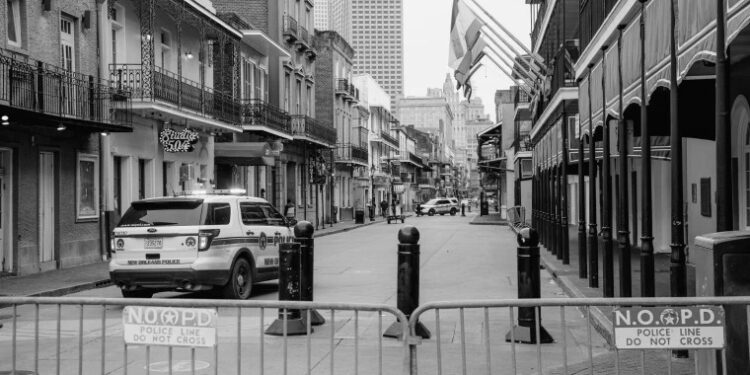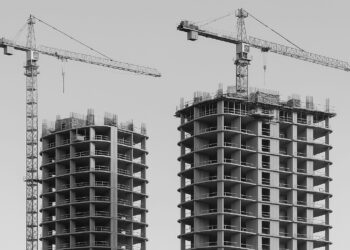Security expert Rob Reiter captured the problem perfectly: “Nobody calls me on the third of July saying, ‘What should we be doing tomorrow to keep the parade safe?’” Instead, cities wait until after tragedy strikes before acting. The failures in New Orleans highlight the dangers of this approach. The city had installed moveable bollards after a similar attack in Nice, France, in 2016—but on the night of the attack, some were missing or out for repairs. Worse still, New Orleans had been warned. A security report years earlier flagged Bourbon Street’s vulnerabilities, and a 2017 Mardi Gras crash that injured 32 people should have been an unmistakable red flag.
So what should cities be doing? First, we need to get serious about vehicle-free zones. As Surico notes, New York City’s approach to New Year’s Eve in Times Square is a model: Entire streets are shut down to vehicles, with massive dump trucks creating an impenetrable perimeter. Reiter argues that if city officials know an area will be packed with pedestrians, “they should move to sequester vehicles entirely.” Instead, many cities settle for half-measures—narrowing lanes, adding plastic barriers or assuming that police presence alone will deter an attack.
But beyond bollards, cities need smarter street design. Architect Jonathan Marvel emphasizes that safety measures should not feel like a militarized “fortress mentality.” Instead, cities should integrate protective elements—trees, sculptural barriers, or landscaped buffers—that preserve the character of public spaces while enhancing security. Paris, London, and Copenhagen have all successfully incorporated these strategies, making their streets safer without turning them into fortified zones.
Another key takeaway: Public safety isn’t just about infrastructure. The Bloomberg column highlights an innovative approach taken by Arlington, Virginia, where nightlife workers are trained in conflict resolution and first aid. Security consultant Dimitrios Mastoras argues that “security isn’t a singular responsibility” but something that requires buy-in from bar owners, city officials, and law enforcement alike. That lesson should resonate in entertainment districts like Bourbon Street, where incidents of disorderly conduct and violence are frequent.
Finally, cost should not be an excuse for inaction. Yes, bollards and barriers are expensive—New Orleans’ French Quarter safety plan cost $40 million—but the price of doing nothing is far greater. As Surico points out, New York’s Hudson River Greenway, once the site of a deadly truck attack, is now the busiest bike path in America thanks to well-designed security improvements. Safe streets don’t just prevent attacks—they make cities more livable, vibrant and accessible.
The Bourbon Street tragedy is a painful reminder that cities must take pedestrian safety seriously. The time for action isn’t after the next attack—it’s now.









Beyond the spectacle, Kansas City prepares for World Cup reality